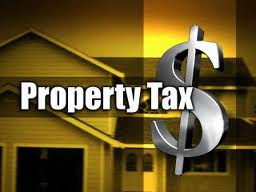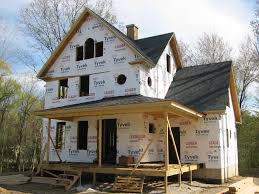5 Tips for Buying a House with Student Loans
January 8, 2020 – By Lexi Klinkenberg
The thought of buying a house with student loans can be daunting, but that doesn’t mean it’s impossible. With a proper strategy in place, and the willingness to do whatever it takes to save for a home, you could be well on your way to pursuing the purchase of your first home.
Do Student Loans Affect Buying a Home?

Sadly yes, student loan debt can possibly affect your journey to homeownership. Saving up for a down payment can be challenging while keeping up with your student loan payments, not to mention budgeting for future monthly mortgage payments. Other potential challenges include your debt-to-income ratio and your credit score. Rest assured, there are solutions. If you are looking to buy a home but still have student loan debt follow these useful tips.
1) Improve Your Credit Score
Your credit score is one of the most frequently used scores to determine whether you should be given a loan. Loan companies will use your credit score to evaluate how risky you are with your borrowing. The higher your credit score the more likely you will be accepted for a loan. You have the ability to view your credit report once a year. This allows you to check for any errors that could be decreasing it. If you have a low credit score there are a few things you can do to build it back up.
Regularly making your student loan and credit card payments on time is a great place to start. On-time payments signal to financial lenders that you are a responsible borrower. Providing evidence that you are accountable with your money. Making the borrowing process much simpler and allowing you to obtain loans more easily.
Additionally, you should attempt to completely pay off any credit card debt you currently have. If that is not possible then start by keeping your credit card balances low. Professionals advise you to only spend around thirty percent of your credit limit each month. Doing this will keep your credit score intact and will eventually lead to an increase in your credit score. Another recommendation is to keep any unused credit lines open. Even if you haven’t used them or have them already paid off, closing them could result in an increase to your credit utilization ratio. If you practice these strategies and avoid opening new credit cards you will see your credit increase in no time.
2) Manage your Debt to Income Ratio
Your debt to income ratio, also known as your DTI is considered to be all of your monthly debt payments divided by your gross monthly income. Financial lenders use this number to determine how well you can manage monthly payments, and if you can afford to repay the money you want to borrow. The DTI ratio is one of the most important numbers lenders look at, and it’s important to try to lower your number before applying for a loan. You will want to keep your DTI ratio below 43% to be accepted for a mortgage loan.

Your DTI has two components: debt and income. So there are two things you can do to reduce your DTI—pay down your debt or increase your income or both. Pay a little more on your loan payments each month and try to pay off any credit card debt you may have. Any reduction in the amount of debt you have will be greatly beneficial. If you have the ability to ask for a raise at your current job, do it. If not, you can try to increase your income by picking up a second job, a side hustle, or asking to work some overtime. Increasing your salary and reducing your debt will not only prove beneficial for buying a house but also with other aspects of your life like refinancing your student loan.
Sometimes paying off debt can be too difficult to manage, that’s why there are two payoff plans that can help you manage your debt. The debt avalanche and debt snowball methods. Both of these methods require you to list out all lines of debt and make payments towards all but one debt. The debt avalanche method lets you use any remaining money left over from other debt payments to put towards your debt that has the highest interest rate. This method will allow you to save the most money on interest.
The debt snowball method allows you to pay off your smallest debts first before tackling your larger ones. Helping you build motivation for repaying all your debt. Teaming up with a financial professional to map out your finances is recommended. They can assist you in creating a plan for budgeting, repaying debt and planning future purchases. Which may be beneficial before buying a house with student loans.
3) Refinance Your Student Loans
When mortgage lenders are assessing your debt to income ratio they will look at the amount of student loan debt you have, your interest rate, and the time it will take you to pay them off. A great way to show lenders you are on track to pay off your student loans faster is through refinancing. If you have high student loan debt, refinancing would be a useful step to take. Generally, the sooner you can refinance your student loans, the better.
When you refinance your student loans your new lender will pay off your original loans and replace them with a new one at a lower interest rate. Having this lower interest rate will save you money immediately as well as in the long run. It will also prove helpful in saving money for a downpayment on a home. Although this sounds like an obvious step to take, not everyone has the ability to refinance. In order to be approved you typically have to have a good credit score, and an acceptable DTI. Clearly, you can see why a high credit score and low DTI are very important. If you qualify for refinancing, it is highly advised to take advantage of it as quickly as possible.

4) Apply for pre-approval on a mortgage
One of the smartest things you can do to ensure you have the best chance of buying the home you want is applying for pre-approval on a mortgage. Often times, homebuyers make an offer on a home and then apply for a mortgage. Doing it the other way around is actually much wiser. Pre-approval will tell you how much of a loan you qualify for, and what your monthly payment might be. It also gives you an idea of what you can afford in your area, or where the best place to live on your budget might be.
Having access to this information can help you determine if you can afford to buy a home in New York, or somewhere like Dallas. To get a better idea of what you qualify for, mortgage lenders will look at your employment history, your DTI, credit history, and assets. It is imperative that those numbers are in good shape before you apply for a mortgage loan. Giving you the best chance of receiving a larger loan, with a lower interest rate.
5) Consider Down Payment Assistance Programs
Many people struggle with the cash down payment that they must make in order to buy a home. This is especially prevalent if you have a significant amount of student loans to pay back. If you find yourself in this situation, there are various types of payment assistance programs. Including federal loan programs, and first-time homebuyer programs. These programs can help ease the burden of down payments, interest rates, and closing costs. With a little research, you can find the perfect one for you and begin the hunt for your first home.
Buying a house with student loan debt can be a stressful time, fortunately, there are options to help put your mind and financial situation at ease. By making a concerted effort to work on lowering your DTI, raising your credit score, taking advantage of refinancing your student loans, and teaming up with the right professionals can enhance your chances of getting the home you deserve.
Originally Published on Redfin
 What is a Supplemental tax bill?
What is a Supplemental tax bill?


















